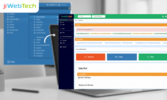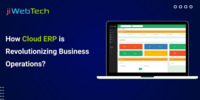- Feb 29, 2024
- Enterprise
- 2747
Share this post on:
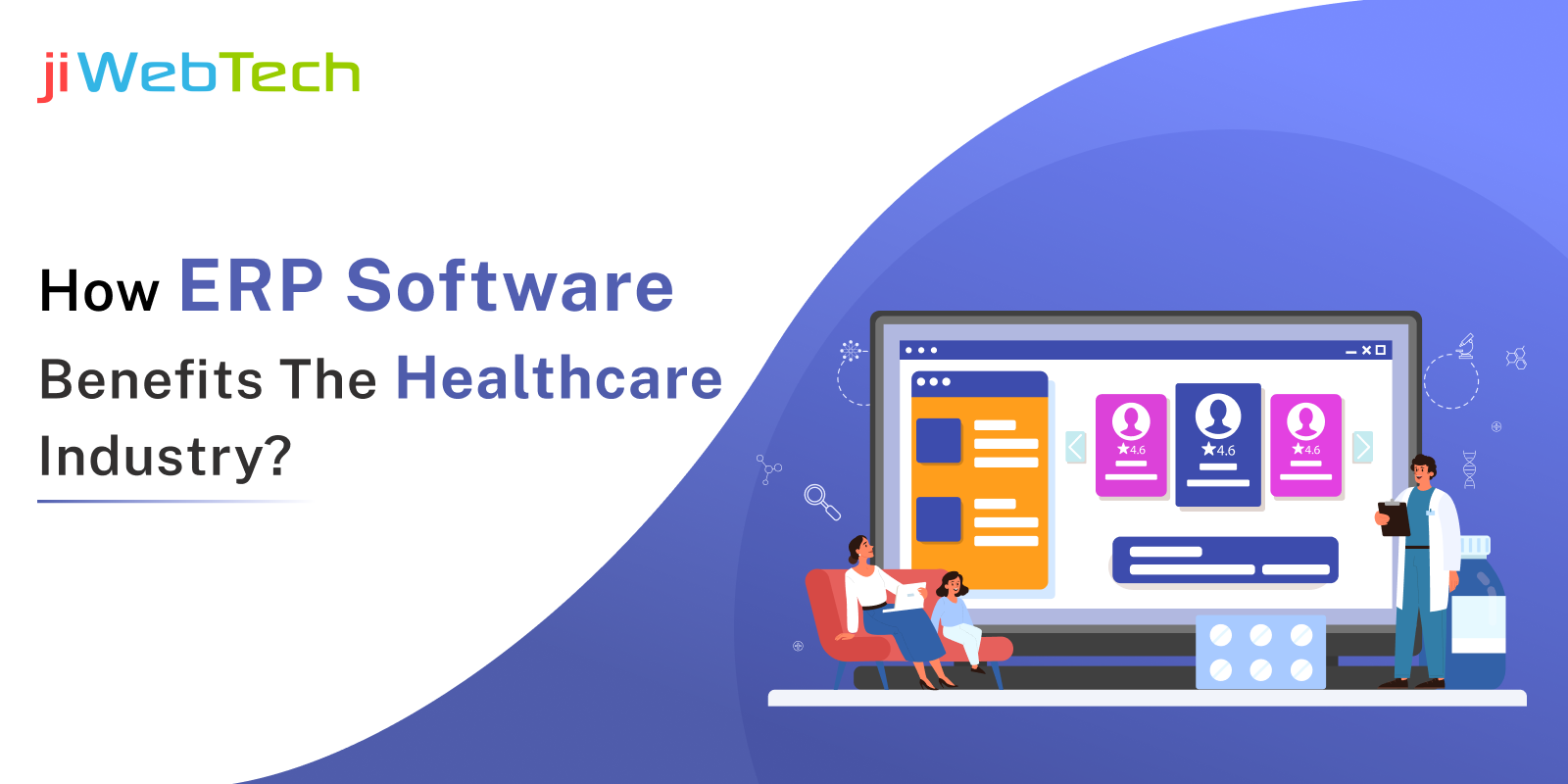
Healthcare efficiency is a crucial aspect of providing quality patient care. With the increasing demand for healthcare services, hospitals and clinics are under pressure to streamline their operations and provide better outcomes while minimizing costs. ERP software solutions have revolutionized the way healthcare providers manage their resources, from medical supplies to staff scheduling, and patient data management.
As healthcare advances, it is essential to incorporate ERP (Enterprise Resource Planning) solutions to tackle the critical issues that arise for healthcare providers and administrators. Nevertheless, to fully harness the potential benefits of ERP solutions in the rapidly changing environment of healthcare management, it is necessary to comprehend their various use cases.
In this blog, we will explore how ERP can enhance patient care and improve operational efficiency in healthcare organizations.
Benefits of Implementing ERP in Healthcare
ERP software development services have become increasingly popular in the healthcare industry due to their ability to streamline operations, improve efficiency, and enhance patient care. Implementing ERP in healthcare can bring about a multitude of benefits that positively impact various aspects of healthcare organizations. Let’s delve into some of the key advantages of implementing ERP systems in the healthcare sector:
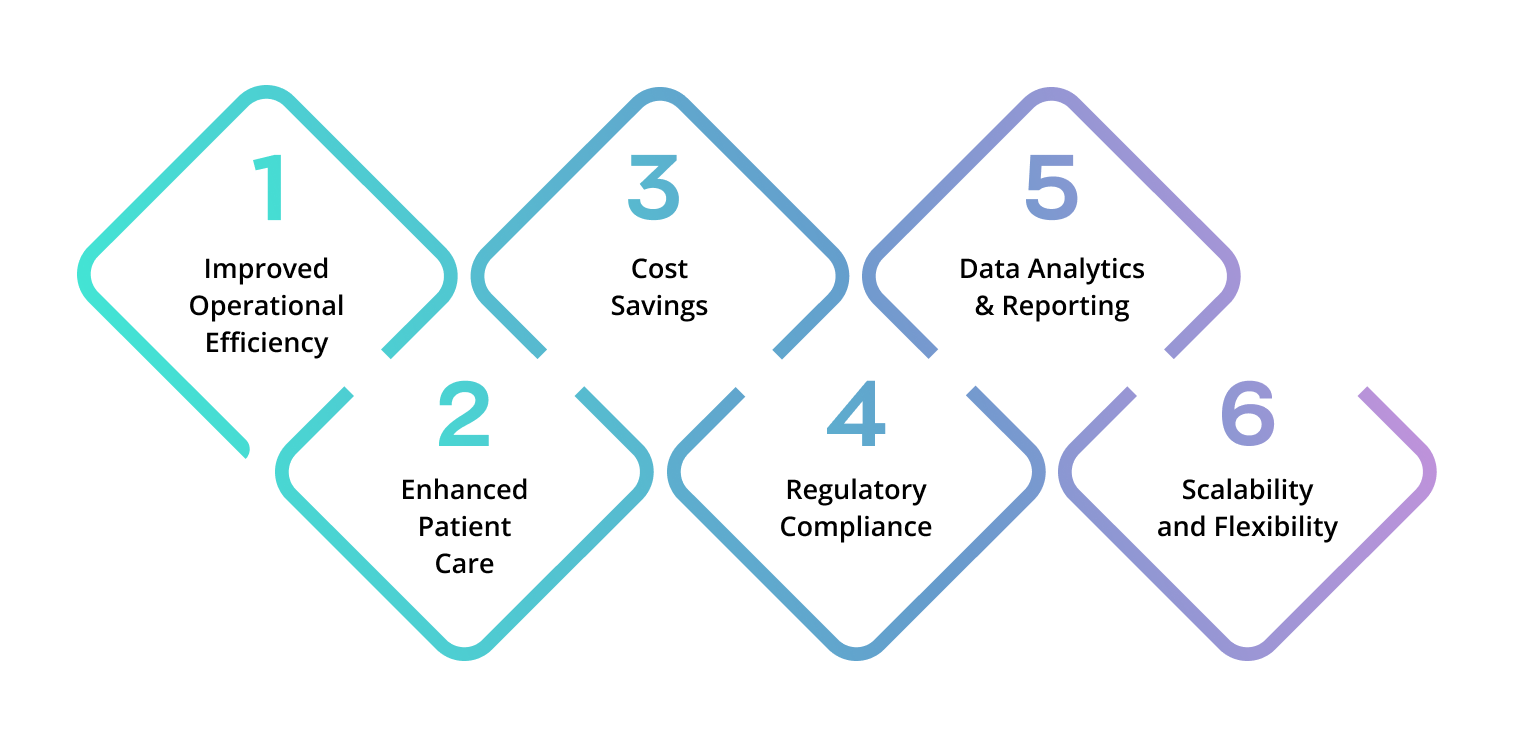
1. Improved Operational Efficiency
One of the primary benefits of implementing ERP in healthcare is the significant improvement in operational efficiency. ERP systems integrate various functions such as finance, human resources, supply chain management, and patient information into a single platform. This integration eliminates redundant processes, reduces manual data entry errors, and enhances overall workflow efficiency. By automating tasks and providing real-time data access, healthcare providers can streamline operations and allocate resources more effectively.
2. Enhanced Patient Care
Implementing ERP systems in healthcare can lead to enhanced patient care outcomes. With all patient information consolidated in a centralized database, healthcare professionals can access comprehensive patient records quickly and easily. This quick access to critical information enables healthcare providers to make informed decisions promptly, leading to improved diagnosis and treatment plans. Additionally, ERP systems facilitate better communication among healthcare teams, ensuring coordinated care delivery and ultimately enhancing the overall patient experience.
3. Cost Savings
Cost containment is a crucial aspect of healthcare management, and ERP systems play a vital role in achieving cost savings. By optimizing processes, reducing inefficiencies, and minimizing errors, healthcare organizations can lower operational costs significantly. Furthermore, improved inventory management through ERP systems helps prevent overstocking or stockouts, leading to better resource utilization and cost savings. The streamlined financial management capabilities of ERP systems also enable better budgeting, forecasting, and financial decision-making, contributing to overall cost-effectiveness.
4. Regulatory Compliance
Compliance with regulatory requirements is paramount in the healthcare industry to ensure patient safety and data security. ERP systems help healthcare organizations adhere to various regulations such as HIPAA (Health Insurance Portability and Accountability Act) by providing robust data security measures and audit trails. With built-in compliance features, ERP systems assist healthcare providers in maintaining regulatory compliance effortlessly, reducing the risk of penalties or legal issues.
5. Data Analytics and Reporting
In an era where data-driven insights are crucial for decision-making, ERP Software offer advanced data analytics and reporting capabilities for healthcare organizations. By analyzing vast amounts of data collected from different departments within the organization, healthcare administrators can gain valuable insights into operational performance, patient outcomes, resource utilization, and more. These insights enable informed decision-making, process improvements, and strategic planning for better overall organizational performance.
6. Scalability and Flexibility
As healthcare organizations grow and evolve, scalability and flexibility become essential factors in adapting to changing needs. ERP systems provide scalability by accommodating organizational growth without significant disruptions or additional investments in new infrastructure. Moreover, the modular nature of ERP solutions allows healthcare providers to customize their systems based on specific requirements, ensuring flexibility in adapting to evolving industry trends and technological advancements.
Challenges in Implementing ERP in Healthcare
The implementation of ERP in healthcare organizations presents unique challenges due to the sensitive nature of patient data, regulatory requirements, and the diverse needs of different departments within a healthcare facility. In this blog post, we will explore some of the key challenges that healthcare organizations face when implementing ERP systems and discuss potential solutions to overcome these obstacles.
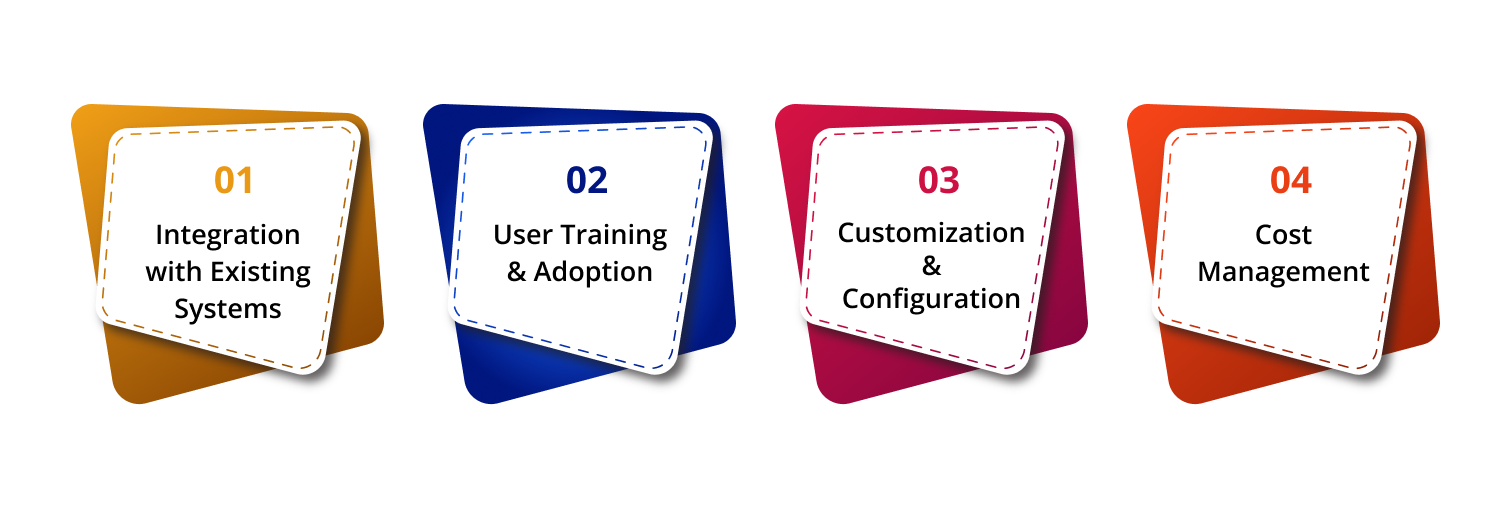
1. Integration with Existing Systems
Healthcare organizations often have a complex IT infrastructure comprising multiple legacy systems that perform critical functions such as electronic health records (EHR), billing, and scheduling. Integrating an ERP system with existing IT systems poses a significant challenge due to compatibility issues, data migration complexities, and the need to ensure seamless communication between different platforms. Healthcare providers must carefully plan and execute the integration process to minimize disruptions to daily operations and avoid data inconsistencies that could compromise patient care.
2. User Training and Adoption
Another common challenge in implementing ERP systems in healthcare is ensuring user training and adoption across all levels of the organization. Healthcare professionals, including doctors, nurses, and administrative staff, may resist using new technology if they perceive it as cumbersome or disruptive to their workflow. Providing comprehensive training programs tailored to the specific roles and responsibilities of different staff members is essential to promote user adoption and maximize the benefits of ERP software. Additionally, ongoing support and feedback mechanisms can help address user concerns and facilitate a smooth transition to the new system.
3. Customization and Configuration
Healthcare organizations have diverse operational requirements based on their specialty areas, size, and patient populations served. Customizing an ERP system to meet the unique needs of a healthcare facility while maintaining standardization across different departments can be a challenging task. Healthcare providers must work closely with ERP vendors or consultants to configure the system according to their specific workflows, reporting requirements, and regulatory obligations. Balancing customization with standardization is key to achieving operational efficiency and interoperability within a healthcare organization.
4. Cost Management
Implementing an ERP system in a healthcare setting involves significant upfront costs related to software licensing, hardware infrastructure upgrades, implementation services, training programs, and ongoing maintenance expenses. Healthcare organizations must carefully evaluate the total cost of ownership associated with an ERP implementation project and develop a comprehensive budget that accounts for both direct and indirect costs. Cost management strategies such as phased implementation approaches, cloud-based solutions, and vendor negotiation tactics can help mitigate financial risks and ensure a successful ERP deployment within budget constraints.
Future Trends in Healthcare ERP
In recent years, Enterprise Resource Planning (ERP) systems have become increasingly essential in the healthcare industry to streamline operations, enhance efficiency, and improve patient care. As technology continues to advance at a rapid pace, the future of Healthcare ERP is poised for significant transformation. Let’s delve into some of the key trends that are shaping the future of Healthcare ERP systems.

1. Adoption of Cloud-Based Solutions
One of the prominent trends in Healthcare ERP is the widespread adoption of cloud-based solutions. Cloud computing offers scalability, flexibility, and cost-effectiveness, making it an attractive option for healthcare organizations looking to modernize their ERP systems. Cloud-based Healthcare ERPs enable seamless data sharing, real-time access to information, and enhanced security measures to protect sensitive patient data.
2. Integration of Artificial Intelligence (AI) and Machine Learning
The integration of Artificial Intelligence (AI) and Machine Learning algorithms is revolutionizing Healthcare ERP systems. AI-powered ERP solutions can automate repetitive tasks, analyze vast amounts of data to derive actionable insights and improve decision-making processes within healthcare organizations. Machine Learning algorithms can help predict patient outcomes, optimize resource allocation, and personalize patient care based on individual needs.
3. Focus on Data Analytics and Business Intelligence
Data analytics and Business Intelligence (BI) tools are becoming increasingly integral to Healthcare ERP systems. By leveraging advanced analytics capabilities, healthcare organizations can extract valuable insights from their data, identify trends, monitor key performance indicators, and make data-driven decisions to enhance operational efficiency and patient outcomes. Real-time analytics dashboards provide stakeholders with a comprehensive view of the organization’s performance metrics.
4. Emphasis on Interoperability and Integration
Interoperability remains a critical focus area for the future of Healthcare ERP systems. Seamless integration with Electronic Health Records (EHR) systems, medical devices, telemedicine platforms, and other healthcare applications is essential for ensuring smooth data exchange and continuity of care across different healthcare settings. Standardized data formats and interoperability protocols play a
5. Personalized Patient Engagement
Personalized patient engagement is emerging as a key trend in Healthcare ERP systems. By leveraging patient data analytics and AI-driven insights, healthcare providers can deliver personalized care plans, targeted health interventions, and proactive wellness programs tailored to individual patient needs. Enhanced patient engagement leads to improved health outcomes, increased patient satisfaction, and better adherence to treatment plans.
Conclusion
In conclusion, ERP systems can significantly enhance patient care and operational efficiency in healthcare organizations. By automating administrative tasks, providing integrated patient management, and facilitating communication and collaboration between healthcare providers, ERP systems can improve the quality of care while minimizing costs. With advanced analytics and reporting capabilities, ERP systems can help healthcare professionals make data-driven decisions, leading to better patient outcomes. By adopting an ERP Software, healthcare organizations can revolutionize their operations and deliver top-quality patient care.
So, if you are looking to develop an ERP solution that can help you grow in the healthcare industry, invest in jiWebTech. We offer the best-in-industry ERP solutions that will help you operate your business more efficiently and effectively. Contact today.









